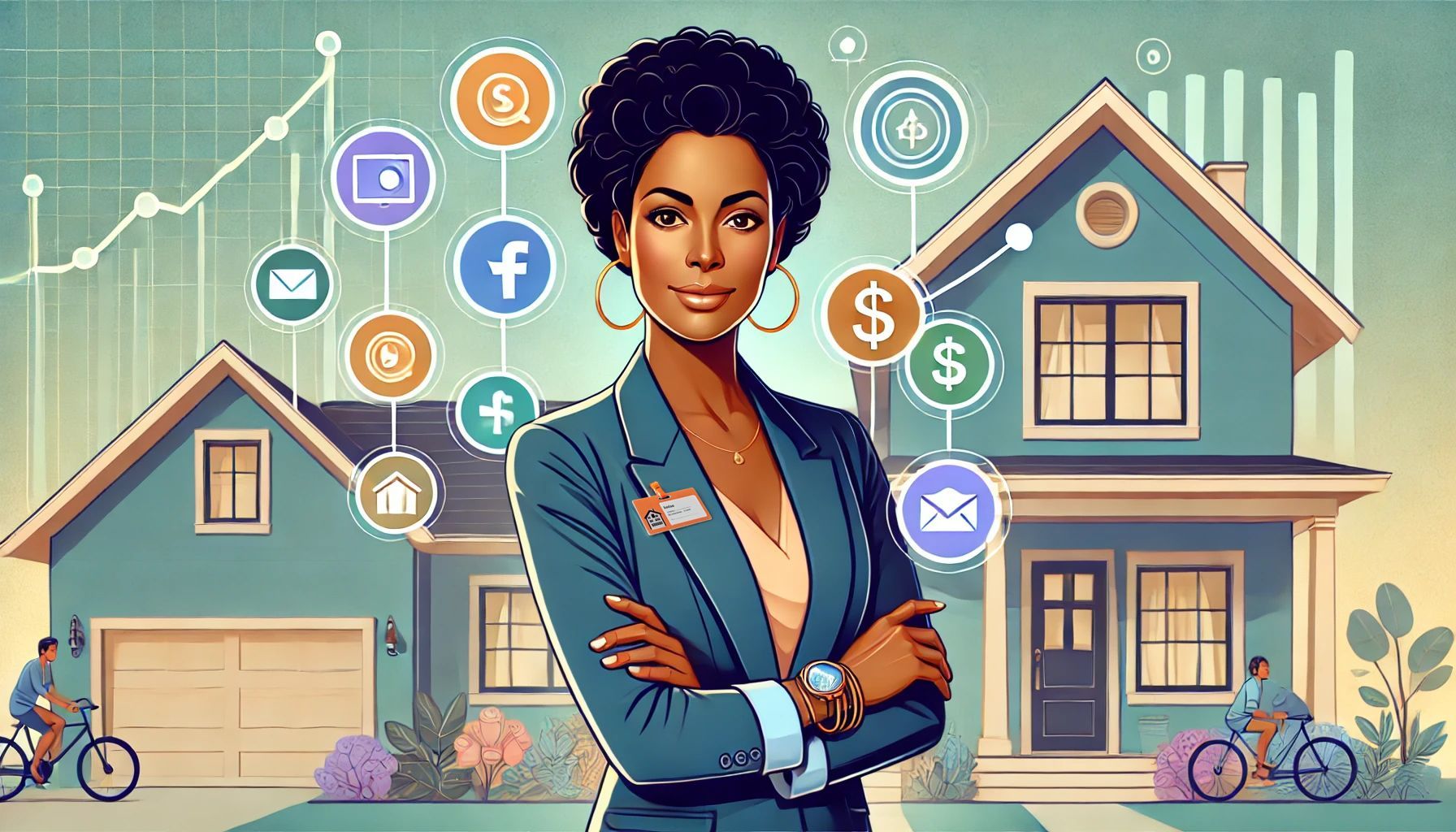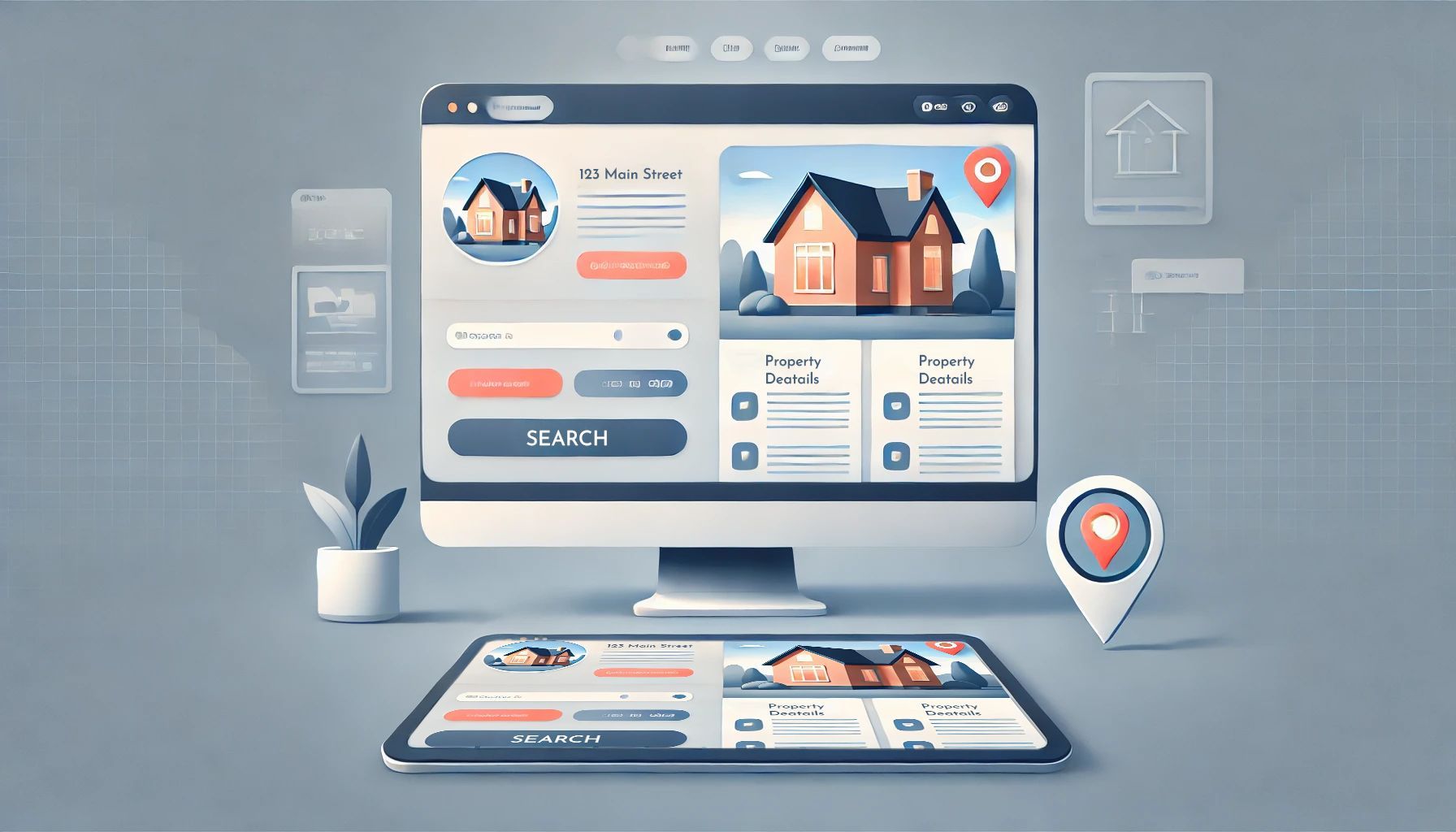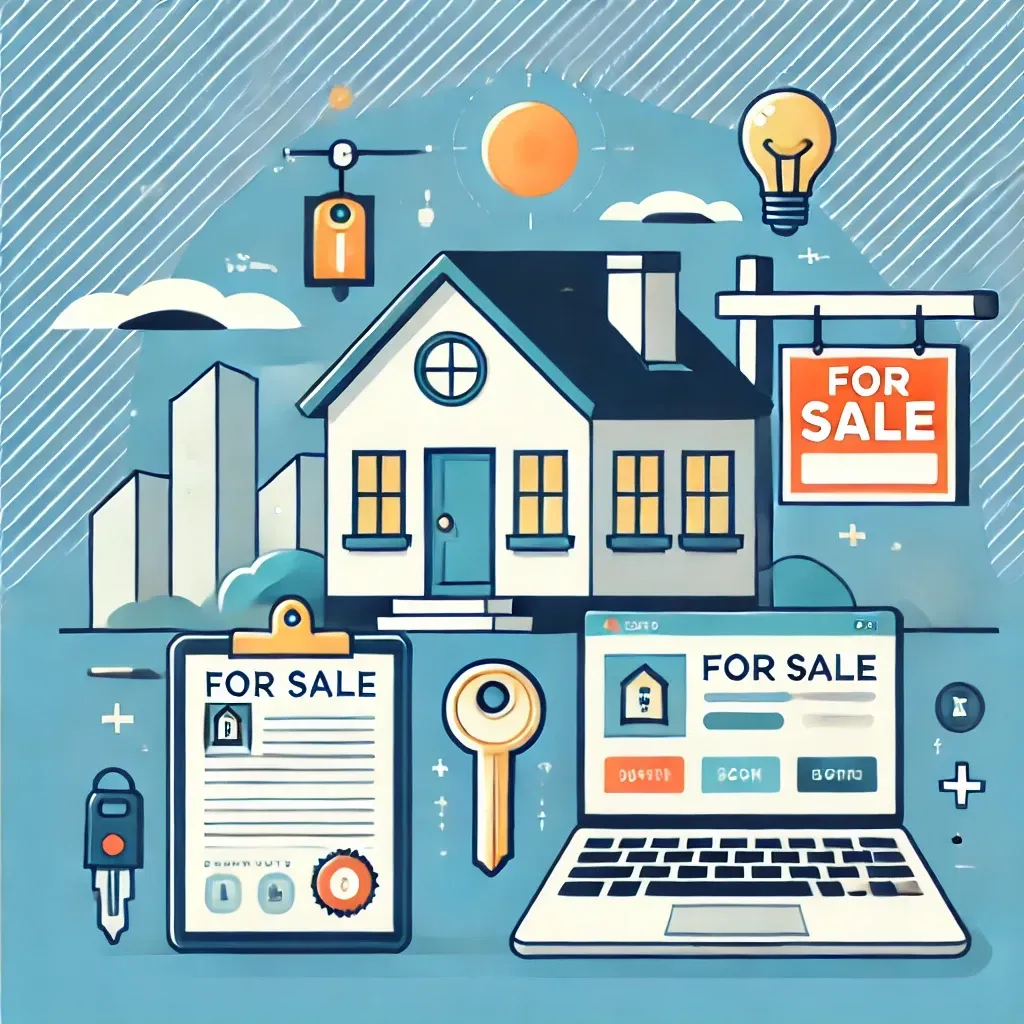The Real Estate Creative
Social Media Strategies for Real Estate Pros
A Guide Based on What Works

I know social media can feel like a giant, ever-changing puzzle, and if you’re a real estate agent trying to juggle listings, showings, and paperwork, keeping up with trends might be the last thing on your mind. But I’ve seen firsthand how agents—whether brand new or seasoned pros—have used social media to boost their business, connect with clients, and even have a little fun along the way.
I want to share some of the best practices I’ve seen work in the past and what’s becoming the standard in real estate marketing today. So, let’s break it down together.
Pick the Right Platforms (Start Small and Build)
One of the biggest mistakes I’ve seen agents make is trying to be everywhere all at once. But the truth is, you don’t need to be on every platform—you just need to be on the right ones.
- If you’re new to real estate or social media, start with Instagram and Facebook. I’ve seen agents gain traction quickly by posting listing photos, behind-the-scenes clips, and engaging in local community groups. Facebook is especially great for connecting with people in your area.
✅ Example: Glennda Baker (@glenndabaker) on Instagram – Glennda, an Atlanta-based realtor, has mastered Instagram and Facebook by sharing personal stories, behind-the-scenes real estate tips, and humorous takes on the industry. She doesn’t just post listings—she connects with her audience, making them feel like they know her before ever working with her.
- For those who’ve been in the business a while, LinkedIn can be a game-changer. I know agents who have landed high-end clients simply by networking and sharing industry insights here.
✅ Example: Mauricio Umansky (@mauricioumansky) on LinkedIn – Mauricio, the CEO of The Agency, shares insightful market trends, business updates, and thought leadership content that positions him as an authority in high-end real estate. LinkedIn isn’t just for job seekers—it’s a great place to connect with potential clients who want an expert’s perspective.
- For top performers looking to stand out, YouTube and TikTok are where things get interesting. The agents I see thriving on these platforms are creating video tours, offering market insights, and even giving a little personality to their brand with fun, short-form videos.
✅ Example: Loida Velasquez (@loidavelas) on YouTube – Loida is a real estate agent and coach who uses YouTube to share valuable insights for both buyers/sellers and fellow agents. Her long-form content covers everything from lead generation to negotiation strategies. She has built a strong brand by consistently educating and engaging her audience.
✅ Example: Taya DiCarlo (@tayadicarlo) on TikTok – Taya has blown up on TikTok by making short, engaging, and relatable real estate content. She mixes humor with real industry advice, keeping her audience entertained while educating them about the housing market. Her videos frequently go viral because they’re fun, digestible, and real.
Bottom line? Pick a platform that suits your personality and audience, and stick with it. You don’t need to juggle them all—just focus on where your clients are and where you feel comfortable creating content.
What Kind of Content Actually Works? (Hint: It’s Not Just Listings)
I get it—you want to sell homes, so posting a “Just Listed” or “Just Sold” graphic feels like the logical choice. But here’s what I’ve seen: people don’t engage with those as much as they do with stories, education, and personal connections.
- New agents: If you’re just starting, share educational content—tips for first-time buyers, things to know before listing a home, or even little-known facts about the local market. According to National Association of Realtors, 70% of homebuyers research online before ever talking to an agent—so make sure your content answers their questions
- Experienced agents: People love a good story. I’ve seen agents build strong relationships simply by sharing stories about the clients they’ve helped or their own journey in real estate. Posting about a tricky negotiation you navigated or a heartwarming sale can make all the difference.
- Top performers: At this level, people want to see market insights and trends. Many high-performing agents I’ve worked with use social media to position themselves as thought leaders—whether it’s posting about rising home values or discussing industry shifts.
✅ Example: Krys Benyamein (@propertybykrys) on Instagram – Krys uses a mix of humor, education, and storytelling to make real estate approachable. He shares insights into the industry, mortgage tips, and his personal experiences as a realtor. His funny skits and relatable content attract a ton of engagement.
✅ Example: Amy Youngren (@northgroup_) on Instagram – Amy and her team do a fantastic job mixing high-quality property marketing with lifestyle content. She shares behind-the-scenes clips, team highlights, and personal insights about the industry, making her page more than just a listing feed.
If you want people to engage with you, mix up your content—education, storytelling, and behind-the-scenes glimpses of your life as an agent.
Mix up your content, and don’t be afraid to get personal. Social media is all about making real connections.
Video is the Future (But You Don’t Need to Be a Filmmaker)
If there’s one thing I’ve noticed in real estate marketing lately, it’s that video is king. And before you say, “I hate being on camera,” hear me out—you don’t need a professional studio or fancy equipment. What I’ve seen work is just getting started with simple videos.
- If you’re new, start with quick clips: a 30-second tip about home buying, a casual video of you at an open house, or a simple Instagram Story sharing your day.
- For experienced agents, client testimonials and market updates in video format work wonders. I’ve seen agents build trust quickly by simply answering common real estate questions in a casual video.
- For top performers, professional video tours and well-produced content can set you apart. One agent I know even does a “Weekend Market Recap” on YouTube and gets a steady flow of leads from it.
✅ Example: Ryan Serhant (@ryanserhant) on YouTube – Ryan is the gold standard for high-quality real estate videos. He takes viewers inside luxury homes with cinematic property tours that feel like mini-movies. If you’re a top performer, investing in professional video could set you apart.
✅ Example: Glennda Baker (@glenndabaker) on TikTok – She pops up again here because her talking-head, unfiltered, and straight-to-the-point videos on TikTok are a masterclass in authentic engagement. No fancy production—just personality and great storytelling.
✅ Example: Jeremy Knight (@theknightgroup) on YouTube – Jeremy specializes in hyper-local content about the Austin real estate market. His deep dives into the market and relocation tips have built him a loyal following.
If you’re starting with video, try short-form content first (Instagram Reels, TikTok, or YouTube Shorts) before moving into full-length videos.
The key? Just start. Your first video won’t be perfect, and that’s okay.
Social Media is a Two-Way Street (Engage!)
What I’ve noticed is that the agents who get the best results on social media aren’t just posting—they’re engaging. Reply to comments, like other posts, and start conversations. The more you engage, the more people will see you.
- New agents: Comment on local business pages, engage with potential buyers and sellers, and join community groups.
- Experienced agents: Networking with other real estate professionals and local businesses can help you expand your reach.
- Top performers: Get into meaningful discussions about industry trends, and don’t be afraid to go live or host Q&A sessions.
✅ Example: Jason Pantana (@jasonpantana) on Instagram – Jason is a social media marketing coach for real estate professionals, and he constantly interacts with his audience. He replies to comments, shares helpful tips, and actively responds to DMs—something all agents should do to build relationships.
✅ Example: Katie Lance (@katielance) on Facebook Groups – Katie runs an incredibly engaged Facebook group for real estate professionals, where she shares valuable marketing advice. Agents who build active community groups can create a loyal network.
Social media favors interaction, so make sure you’re having real conversations.
Pro tip: If you’re not interacting with people in your comments and DMs, you’re leaving business on the table.
Hashtags and Ads: Do They Matter?
I get asked this all the time—“Do hashtags really make a difference?” The answer is yes, but only if used correctly.
- New agents: Stick with local and industry-related hashtags like #YourCityHomes or #FirstTimeHomeBuyerTips.
- Experienced agents: Use a mix of location-based, niche, and trending hashtags. Instagram and TikTok analytics show that 5-10 well-placed hashtags perform better than 30 random ones.
- Top performers: You should already have a branded hashtag by now—something like #AgentNameSells or #LuxuryHomesByYou.
✅ Example: Tom Ferry (@tomferry) on Instagram – Tom uses a strategic mix of hashtags to extend his reach. He pairs broad hashtags like #RealEstateAgent with local-specific ones like #LosAngelesHomes to reach the right audience.
✅ Example: Ken Pozek (@kenpozek) on Facebook Ads – Ken uses targeted Facebook and YouTube ads to attract out-of-state buyers moving to Orlando. His ad strategy is focused on relocation guides, which generate a ton of inbound leads.
As for paid ads, I’ve seen agents get great results with Facebook and Instagram ads, even with just $5-10 per day. If you’ve been struggling to grow, a little ad spend can go a long way.
If you’re running ads, target them smartly—geo-targeting and demographic-based advertising will yield the best results.
Consistency Wins (But Don’t Burn Out)
One of the most important things I’ve learned? Consistency beats perfection every time.
- New agents: Post 3-4 times a week. If that feels like a lot, use a scheduler like Hootsuite or Later to batch your posts.
- Experienced agents: Aim for 4-5 times a week, mixing in listings, stories, and industry updates.
- Top performers: You can probably post daily without much trouble, but don’t overdo it—keep it valuable.
The goal isn’t to be perfect—it’s to show up regularly and engage with your audience.
Final Thoughts: Social Media is an Investment in Your Business
So many agents have grown their businesses through social media, and you can too. Whether you’re brand new or a seasoned pro, the key is to stay consistent, engage with people, and keep learning. Social media isn’t a magic bullet, but when done right, it can be one of the best tools in your real estate toolkit.
So, if you’re feeling stuck or don’t know where to start, take it one post at a time. You’ve got this!
And hey—if you ever go viral, remember who gave you the push 😉.
NOTE:
I’ll be the first to admit—my own social media isn’t exactly setting the world on fire. It’s kind of like that one open house nobody shows up to… awkwardly quiet and a little sad. I’ve done the research, I know what works, but my own posts still end up looking like I just discovered the internet yesterday.
Instead I spend most of my time digging into what actually works for other agents—so I can pass the good stuff along to you (and maybe improve my own feed in the process).
So, if your social media’s been gathering digital dust, trust me, you’re not alone—we’ve got some work to do! 😆






